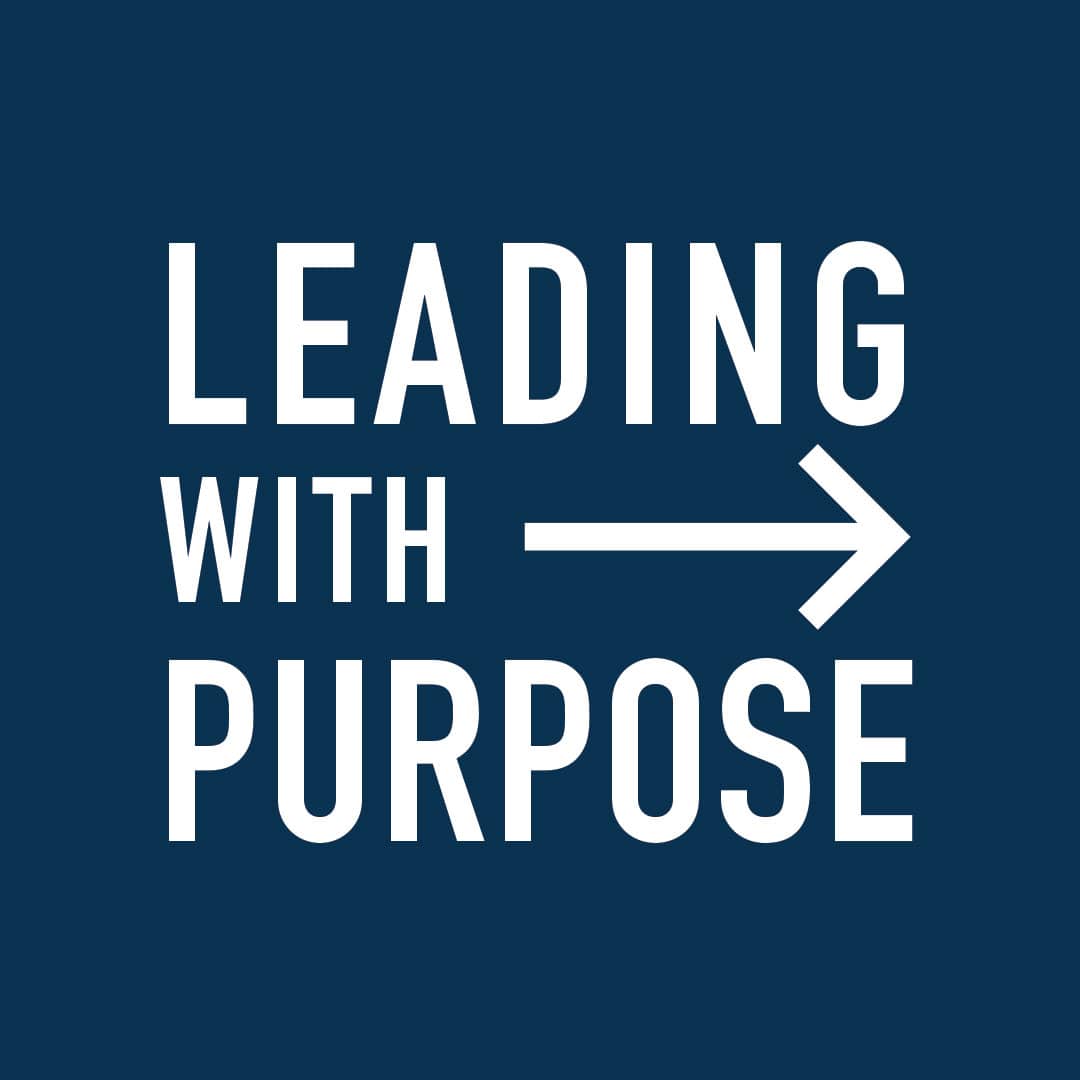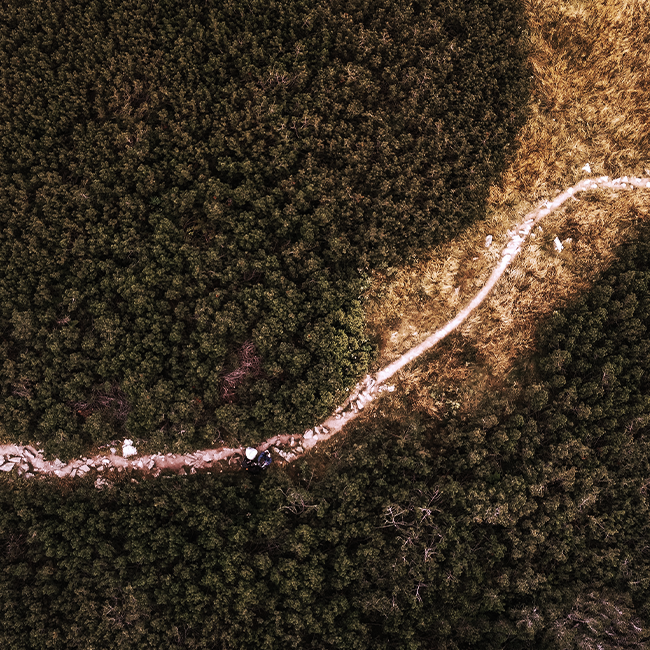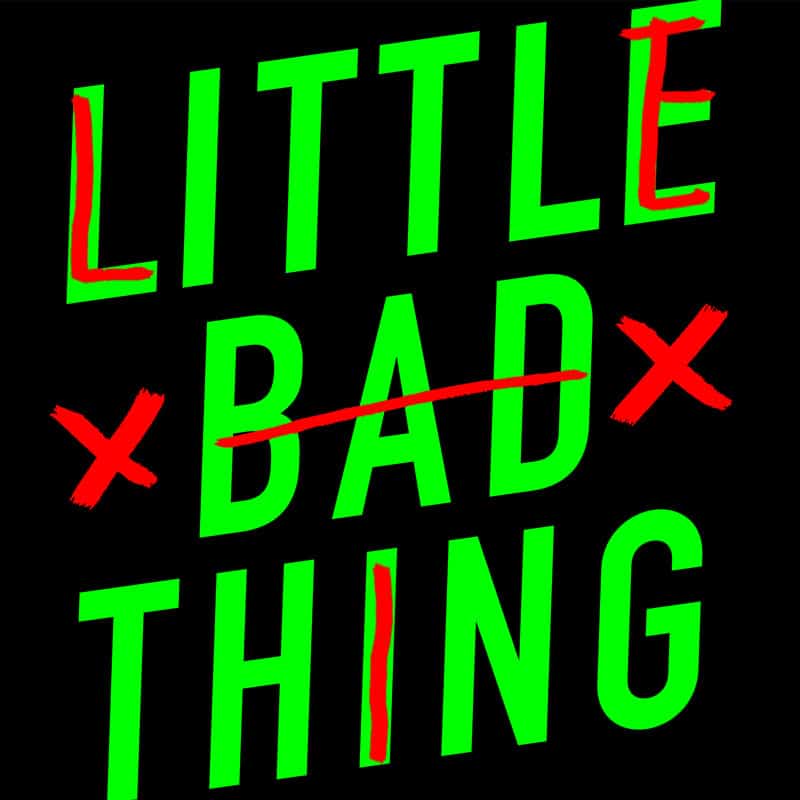Life and Shares

Thinking about investing? Chances are, you’re already playing the game. This new podcast unpicks the share market so you can better understand how the system works.
Did you know that some trading apps use the same psychological tricks as gambling apps? That the big players in financial services can pay to get “privileged access” to the ASX?
Life and Shares is a podcast from The Ethics Centre about the share market. Even if you don’t actively invest, chances are that you are already connected to the share market; as a taxpayer in Australia, a significant amount of your superannuation is already being traded.
In this four-part series, hosted by The Ethics Centre’s Cris Parker, we’ve assembled people from different industries to help you understand the rules of the game so you can make informed decisions. We’re looking beyond the jargon to unpack how the system works and what ethical issues you could – and should – consider if you decide to play.
Some may tell you they can pick a winning share. This series unpicks the share market so that you can make decisions you’ll be proud of.
Available to listen now on Spotify and Apple Podcasts.
This podcast is presented by The Ethics Centre. Our work is made possible by donations including the generous support of Ecstra Foundation – helping to build the financial wellbeing of Australians. This series follows the popular first season, Life and Debt.
Life and Shares Podcast Trailer
Whats inside the guide?
EPISODES
EPISODE ONE: PEELING BACK THE LABEL
Let’s break down the jargon: starting with investor classifications.
Did you know that your level of wealth impacts how you can invest in the share market? In this episode, we hear from RMIT Associate Professor Chris Berg who thinks it’s “deeply unethical” that retail investors (‘mum and dad’ investors) don’t have access to the kind of products that rich people do and so are shut out of some of the most lucrative and risky investments… but accountants say there’s a good reason for that.
We also learn about the murky areas of ‘ethical’ and ‘sustainable’ investing and how it differs from ‘responsible’ investing. If an Exchange Traded Fund (ETF) is labelled sustainable, is it irresponsible for it to have a large holding in a fossil fuel company? Is ESG reporting the best way to judge which companies are good to invest in?
GUESTS:
- Chris Berg, Associate Professor at RMIT University and Director and Co–founder of the RMIT Blockchain Innovation Hub
- Susheela Peres da Costa, Principal at The Stewardship Centre
EPISODE TWO: WHO'S RUNNING THE SHOW?
If video killed the radio star, have brokerage apps killed the stockbroker? What’s the role of robo-advisers? And how are algorithms shaping the marketplace?
Did you know that the big players in financial services can pay to get “privileged access” to the ASX? We ask Paul Lajbcygier from the Monash Data Futures Institute, is that fair?
We also hear from UNSW Professor Gigi Foster who thinks greed and profit make the market go round – and that’s not a bad thing. But on the other hand, she acknowledges there’s a growing class of people who don’t work for their wages – they just move their investments around.
GUESTS:
-
-
- Gigi Foster, Professor with the School of Economics at the University of New South Wales
- Paul Lajbcygier, Computation Finance expert at the Monash Data Futures Institute
-
EPISODE THREE: IS TRADING GAMBLING?
For the first two months of COVID, nearly 5,000 Australians opened an online trading account… every day. Eighty percent of them lost money.
So, is trading gambling? We speak with a clinical psychologist who’s concerned about the lack of awareness and resources for people addicted to trading. We also speak with co-founder of the International Day Trading Academy Cameron Buchanan, who admits that while trading is gambling, he thinks there’s an essential difference.
GUESTS:
- Cameron Buchanan, Co-founder of the International Day Trading Academy
- Anonymous Guest, Clinical Lead at a gambling treatment centre
Listen to Ep 3 on Apple or Spotify now.
EPISODE FOUR: THE POWER OF PERSUASION
Humans aren’t rational… and yet so much economic modelling assumes we are.
In this episode, we look at a Canadian experiment that investigated the ‘gamification’ of investment apps… and how one minor tweak to the app saw people increase the number of trades by a whopping 40%.
We meet behavioural finance specialists Angel Zhong from RMIT University and Ravi Dutta Powell from The Behavioural Insights Team, who explain how cognitive biases impact how we assess risk and make investment decisions.
GUESTS:
- Angel Zhong, Associate Professor of Finance, RMIT University
- Ravi Dutta-Powell, Senior Advisor, The Behaviour Insights Team
Festival of Dangerous Ideas (FODI)

Catch up on over ten years of bold and challenging ideas from some of FODI's most disruptive thinkers
Since 2009 the Festival of Dangerous Ideas, or FODI to its fans, has curated thought-provoking topics and new approaches to wicked problems. FODI brings to light important conversations that push the boundaries of conventional thought, challenging thinking on some of the most persevering and difficult issues of our time.
Delve into over 10 years’ worth of dangerous ideas. Hear from our festival alumni – the world’s best experts, innovative thinkers and mischief makers – as they share provocative ideas and conversations that encourage debate and critical thinking.
It’s time to get uncomfortable…
Available on Apple, Spotify, or whatever you get your podcasts.
FODI: The In-Between

An audio time capsule from The Festival of Dangerous Ideas, recording this moment in time
We are at the end of an era, and on the precipice of a new one. What do we keep? And what do we leave behind?
FODI: The In-Between features 8 conversations between 16 of the world’s biggest thinkers, featuring Stephen Fry, Roxane Gay, Waleed Aly, Peter Singer, Sam Mostyn, Slavoj Žižek, Naomi Klein and more. Accompanied by 8 short creative sound responses to the themes released alongside each conversation.
FODI: The In-Between tackles the big issues of our world and future, from climate change and global politics to artificial intelligence, truth and social media.
“The In-Between project is like a requiem for a passing age. These are the types of candid and big thinking conversations that you hear in the green room at FODI, which we are recreating in a new audio format.” – Danielle Harvey, Festival Director, Festival of Dangerous Ideas
Listen to FODI: The In-Between trailer
EPISODES

Episode 01 | Joya Chatterji & Stephen Fry | There is no beginning
In a conversation moderated by Simon Longstaff, historians Joya Chatterji and Stephen Fry discuss whether the age of Enlightenment is truly coming to an end. They share varying Enlightenment narratives that cross geographical, cultural and class borders and challenge the attempt to define an era of history as linear, with a definitive start and end point.

Episode 01.5 | Light Shines | B-Side
Sydney-based writer Tasnim Hossain records her written take on the meandering histories of Enlightenment discussed by Joya Chatterji and Stephen Fry, and the experimental sounds of the first known recordings of the human voice. Music is composed from sounds found in the archives of firstsounds.org, and recordings taken from a museum of mechanical music (fairgroundfollies.com).

Episode 02 | Sam Mostyn & Peter Singer | We have failed to protect those who don’t yet exist
A conversation between business sustainability advisor Sam Mostyn and moral philosopher Peter Singer, moderated by Simon Longstaff. Sam and Peter discuss the role of business in sustainability and climate action, the discrepancies between our values and monetary donations for global aid, and the ethics of responsibility we have toward the generation of humans who don’t yet exist. They touch on how the pandemic has highlighted gender and class divisions, along with the significance of community and care.

Episode 02.5 | Anthropocene | B-Side
We hear the recorded sound of the invisible electromagnetic landscape that humans created unintentionally, allowing us to tune in to what our environment has to endure. Against a backdrop, we hear the voices of anonymous FODI listeners, recording their hopes and fears for the future of humanity, and a poem by Sylvie Barber and Simon Longstaff. Anthropocene is a response to Sam Mostyn and Peter Singer’s discussion.

Episode 03 | Lee Vinsel & Tyson Yunkaporta | A gradual decline into disorder
Lee Vinsel and Tyson Yunkaporta speak with Ann Mossop about the passing age, apocalypses, and the cyclical nature of eras. Their conversation is anchored in language: both speak of systems, entropy, the roles of maintainers or custodians, and the machines and languages of capitalism. Tyson explains entropy by connecting an incident of Aboriginal people spearing Dutchmen centuries ago to the modern-day experiences of colonialism, and Lee speaks of entropy as the natural breaking down of systems.

Episode 03.5 | Within Salt | B-Side
During Sydney’s most recent lockdown, sound artist Alexandra Spence submerged a 15 minute-long piece of cassette tape in seawater. The cassette tape contained a field recording of waves, and a recording of Alex’s voice offering a non-definitive, and non-hierarchical list of things found in the Pacific Ocean. The resulting physical deterioration of the magnetic tape and degradation of the audio recording can be heard in this composition. ‘Within Salt’ is a short piece that responds to Lee Vinsel’s take on entropy and the breaking down of technology, along with Tyson Yunkaporta’s words on the importance of story and of preserving nature over data.

Episode 04 | Eleanor Gordon-Smith and Slavoj Žižek | The age of doubt, reason and conspiracy
Against the pillars of Enlightenment, how can we make sense of conspiracy theories, tribalism, and deepening divisions between our beliefs? In a conversation moderated by Simon Longstaff, Eleanor Gordon-Smith and Slavoj Žižek discuss the proliferation and saturation of knowledge, the rise of conspiracy theories, and whether or not the Age of Enlightenment is coming to an end.

Episode 04.5 | The Dancer | B-Side
Recording art for a post-human world, a machine attempts to describe a human dance. The piece responds to Eleanor Gordon-Smith and Slavoj Žižek’s discussion, the power of words to create reality, and the experience of emotion between the digital or artificial and what we take as ‘real’.

Episode 05 | Joanna Bourke & Toby Walsh | Killer robots and the human construction of war
By the year 2062, it is predicted that we will have built machines that are as intelligent as humans. Modern weapons will become more autonomous, machines will further infiltrate our daily lives, and the way we think of humanity will be permanently altered. To understand what lies ahead and learn from our past, Ann Mossop sits between Joanna Bourke and Toby Walsh in a conversation about the future of AI, killer robots and what it means to be human.

Episode 05.5 | Semi-Autonomous | B-Side
A text-generating AI that has been trained with FODI transcripts speaks in conversation with a deepfake AI about violence, conspiracy theories and what it means to be human. Our FODI-trained AI was created using Max Woolf’s simplified version of OpenAI’s Generative Pre-trained Transformer 2 (GPT-2) and Google Colab; Max has created a tutorial so that anyone can train an AI model for free. Semi-Autonomous is a response to Joanna Bourke and Toby Walsh’s discussion.

Episode 06 | Roxane Gay & Kate Manne | The mild terror of publishing feminist cultural criticism
Roxane Gay and Kate Manne speak to this moment in time, the nature of progress, and their hopes and fears for the future. In a conversation moderated by Ann Mossop, they discuss modern feminism, online communication and social media, and the “lean white male” bodies that history has centred over those that exist on the periphery.

Episode 06.5 | Tongues | B-Side
Tongues is an explicit, potent musical manifesto, exploring having your voice taken away, in response to Roxane Gay and Kate Manne’s discussion. Tongues is written and performed by Tanya Tagaq, a Canadian Inuk improvisational singer, avant-garde composer, bestselling author, and Saul Williams, Sumach Valentine, Jesse Zubot; published by Songs of Six Shooter B (SOCAN), Martyr Loser King (ASCAP), Warp Music Limited (PRS/ASCAP), Jesse Zubot (SOCAN).

Episode 07 | S. Matthew Liao & John Rasko | Immortality, fraud and the future of the human species
From the ancient tale of Gilgamesh to Mary Shelly’s Frankenstein, the dream of immortality has long captured the imagination of writers and scientists. But how close are we to conquering death? In a conversation moderated by Simon Longstaff, neuro-ethicist S. Matthew Liao speaks with stem cell-researcher John Rasko about the age of regenerative medicine, the heroes and fraudsters of the past, and the reality of a distant future where genetic engineering helps humans to colonise future planets.

Episode 07.5 | Revivification | B-Side
CellF is a cybernetic musician and the world’s first neural synthesiser, created by Perth-based artist and researcher, Guy Ben-Ary. Its ‘brain’ is made of biological neural networks bio-engineered from the artist’s own cells, that grow in a petri dish and control in real time its ‘body’ – an array of synthesizers that play music live with human musicians. Revivification is a short piece that responds to S.Matthew Liao and John Rasko’s discussion.

Episode 08 | Waleed Aly & Naomi Klein | Our entanglements have been exposed
On the precipice of a new age, what are the forces that will bring us together, and what is driving us apart? Simon Longstaff sits between Waleed Aly and Naomi Klein as they discuss the decline of meta-narratives in society and politics, reconciling coloniser and Indigenous histories and narratives, and trends of hyper-individualism and conspiracy. Neither are wholly optimistic nor pessimistic about the future that lies ahead.

Episode 08.5 | Endtropy | B-Side
Whats inside the guide?
WITH THANKS
Danielle Harvey, Festival Director and Co-curator
Simon Longstaff, Co-curator
Ann Mossop, Co-curator
Rebecca Blake, Producer, FODI
Jess Hamilton, Senior Audio Producer, Audiocraft
Adam Connelly, Sound Designer and Composer, Audiocraft
Jasmine Mee Lee, Researcher/producer, Audiocraft
Weronika Razna, Mixing engineer, Audiocraft
Kate Montague, Executive Producer, Audiocraft
Michelle Walter, Head of Fundraising and Development, FODI
Jess Lewis, Content Manager, FODI
Kathleen Evesson, Head of Marketing and Communications, FODI
Design by Glider Global
Life and Debt

A new podcast series with valuable insights on business sustainability, social responsibility and ethical decision making.
A podcast series that takes a deep dive into debt, what role it has in our lives and how we can make better decisions about it.
Australians are more in debt than ever before. A third of us are under financial stress. But how much do we actually know about debt? And why don’t we talk about it more often?
Created by Young Ambassadors from The Ethics Centre’s Banking and Finance Oath initiative (The BFO), the series aims to start a national conversation about what debt is and how we might make better decisions about it.
“Debt stood out to us as something that’s a challenge for everyone, but young people in particular,” said Iqra Bhatia, a young ambassador from the BFO, “because debt is a part of life, and it will be a part of our future.”
In this concise, four-part series, hosted by The Ethics Centre’s Cris Parker, hear from financial advisors, journalists, finfluencers, psychologists and historians about the psychology, the history, the marketing and the future of debt.
Because managing debt might be a part of life, but it’s not black and white.
Available to listen now on Spotify and Apple Podcasts.
This podcast is a project from the Young Ambassadors in The Ethics Centre’s Banking and Finance Oath initiative. Our work is made possible by donations including the generous support of Ecstra Foundation – helping to build the financial wellbeing of Australians. This series was released in 2022, ahead of our recent follow-up series Life and Shares.
Life and Debt Podcast Trailer
Whats inside the guide?
EPISODES
THE PSYCHOLOGY OF DEBT
How we make decisions about debt is shaped by more than just numbers on a spreadsheet; our childhood experiences, values and beliefs play a huge role. What role does shame and guilt play in the decisions we make about debt?
Australians are obsessed with buying their own home – more so than anywhere else in the world. Why? And what does this mean for our level of debt?
Hear from:
- Jess Brady, who has fourteen years of experience in the financial services industry and is the co-founder of the platform Ladies Talk Money – dedicated to supporting women from all walks of life in their journey toward financial freedom.
- Fiona Guthrie, CEO of Financial Counselling Australia who has been involved with the consumer movement for over 30 years.
- Rebecca Huntley, one of Australians foremost researchers on social trends.
- Nathalie Spencer, a behavioural scientist specialising in financial capability.
Listen to Ep 1 on Apple or Spotify now.
Read more about the ethical themes of this episode:
THE HISTORY OF DEBT
Today, most of us just accept that debt is a part of life, but how did we get here? In this episode we talk to financial journalist Alan Kohler and lecturer in philosophy Dr Alex Douglas, about how debt as we know it today came to be and what role it has in our society.
Hear from:
- Alex Douglas, a senior lecturer in philosophy in the School of Philosophical, Anthropological, and Film Studies at the University of St. Andrews, Scotland and author of the book, The Philosophy of Debt.
- Alan Kohler, who has been a financial journalist for 46 years. He currently works for the ABC and recently started a new publication – The Constant Investor.
Listen to Ep 2 on Apple or Spotify now.
Read more about the ethical themes of this episode:
THE MARKETING OF DEBT
Debt as a concept can be unpalatable. It can mean mortgages, decades long contracts and a total loss of freedom. But for some people, debt isn’t synonymous with restriction and constraint; it’s an opportunity. But the way debt is sold to us influences the way we perceive it. And in the new world order of buy now pay later, how is the way debt is marketed to us shifting?
Hear from:
-
-
-
- Finfluencer Natasha Etschmann, who shares how she saves, invests and makes money through her ‘@tashinvests’ channels on TikTok and Instagram.
- Adam Ferrier, a consumer psychologist, advertising creative and founder of the agency Thinkerbell.
- Fiona Guthrie, CEO of Financial Counselling Australia who has been involved with the consumer movement for over 30 years.
- Jonathan Shapiro, senior reporter at the Australian Financial Review.
-
-
Listen to Ep 3 on Apple or Spotify now.
Read more about the ethical themes of this episode:
THE FUTURE OF DEBT
We know that debt can be emotional. That sometimes it’s neutral. That debt is often necessary. And that debt has a long, long history. But what’s the future of debt? Will credit cards disappear from our lives? Will our concept of work itself change? In the context of a costly climate future, what are we going to have to let go of as a society? How do we need to adapt?
Hear from:
-
-
-
- Brett King, a futurist, author, host of a globally-recognised radio show, and the Founder and Executive Chairman of neo-bank Moven.
- Alan Kohler, who has been a financial journalist for 46 years. He currently works for the ABC and recently started a new publication – The Constant Investor.
-
-
Listen to Ep 4 on Apple or Spotify now.
Read more about the ethical themes of this episode:
Leading With Purpose

A new podcast series with valuable insights on business sustainability, social responsibility and ethical decision making.
A podcast series with valuable insights on leadership, business sustainability, social responsibility and ethical decision making.
Hosted by Dr Simon Longstaff AO from The Ethics Centre, this is a podcast for emerging and established leaders interested in how the business world is changing.
Until recently, being a successful business person was synonymous with maximising profits. Today, the measures for success are more difficult to define, with environmental and social responsibility, long term sustainability, and ethics added to the mix.
In this series, we speak to pioneers in business, whose ideas of leadership challenge traditional stereotypes. We gain insights into how they got to where they are, what good leadership looks like and what advice they have for the business leaders of the future.
Hear from influential business leaders on how they approach leadership, ethics in their work and how they see the future shaping up.
In the latest episodes, we talk to CEO of Mirvac Susan Lloyd-Hurwitz, former Chief Executive and Artistic Director of the London Philharmonic Orchestra Tim Walker, Professor of Collective Intelligence, Public Policy and Social Innovation at University College London Sir Geoff Mulgan, Experience Director with Oracle Roshni Hegerman, and founders of Life Itself Sylvie Barbier and Rufus Pollock.
Catch up on insightful conversations with renowned Australian business leader David Gonski, environmental economist Pavan Sukhdev, practical campaigner Dame Julia Cleverdon DCVO CBE, founding Executive Director of the United Nations Global Compact, Deputy Chair of Australia Post Holly Kramer and world authority on corporate responsibility and sustainable development John Elkington.
“I think we are humans and as managers we must never forget that we’re humans. And we have obligations to our society as humans which we bring to every part of the world in which we work.” – David Gonski
It’s important to understand that it’s not all about you, that the world is about others, that you occupy it with. So how can you actually help make things better, not just for yourself, but for the people around you? – Roshni Hegerman
“Companies are not merely machines to make money for shareholders, they should have purpose. In fact, they should begin with purpose and then define their path to profitability. And these ideas would have been crazy 10, 15, 20 years ago, but they’re not anymore.” – Pavan Sukhdev
Sign up for more business insights with Professional Ethics Quarterly newsletter here.
READ MORE
Sir Geoff Mulgan on what makes a good leader
Sir Geoff Mulgan sat down with The Ethics Centre’s Dr Simon Longstaff to discuss trust, power and what makes a good leader.
Susan Lloyd-Hurwitz on diversity and urban sustainability
Susan Lloyd-Hurwitz discusses how we can redefine the landscape to create more sustainable and connected urban environments, leaving a legacy for generations to come.
Tim Walker on finding the right leader
Former CEO and Artistic Director of the London Philharmonic Orchestra, Tim Walker discusses what it takes to grow a profitable business and find the right leader.
Roshni Hegerman on creativity and constructing an empowered culture
One of the most awarded strategic thinkers globally, Roshni Hegerman discusses creativity, psychological safety and constructing an empowering culture.
Sylvie Barbier and Rufus Pollock on failure and fostering a wiser culture
Sylvie Barbier and Rufus Pollock uncover the realities of being a leader, the importance of failure and fostering a wiser culture.
John Elkington on business sustainability and ethics
John Elkington is a world authority on corporate responsibility and sustainable development. Elkington sat down to chat about the future of business sustainability.
Holly Kramer on diversity in hiring
Holly Kramer, Deputy Chair of Australia Post & Non-Executive Director on the Boards of Woolworths, discusses diversity in hiring and responsible management.
Dame Julia Cleverdon on social responsibility
Passionate and practical campaigner who gained an international reputation for ‘connecting the unconnected’, Dame Julia Cleverdon discusses the future of business sustainability and social responsibility.
Georg Kell on climate and misinformation
Founder of the United Nations Global Compact, Georg Kell discusses sustainable development goals and how businesses can take the opportunity to learn before crises occur.
Pavan Sukhdev on markets of the future
Environmental economist, Pavan Sukhdev sits down to discuss business sustainability, valuing human capital and the markets of the future.
David Gonski on corporate responsibility
Renowned Australian businessman, David Gonski, discusses the future of business sustainability, climate and corporate responsibility.
Whats inside the guide?
WITH THANKS
If you’d like more business ethics case studies, leadership insights and emerging ethical trends sign up to our Professional Ethics Quarterly newsletter.
The Ethics Centre is a world leader in assessing cultural health and building the leadership capability to make good ethical decisions in complexity. Read more about our Consulting services for organisations or consider joining our Ethics Alliance.
A production of The Ethics Centre. Produced by Kara Jensen-Mackinnon. Music by Podington Bear. Hosted by Dr Simon Longstaff.
Little Bad Thing
A podcast series about the choices we wish we could undo

A podcast series about the choices we wish we could undo
A podcast series about the choices we wish we could undo
Each week, philosopher Eleanor Gordon-Smith interviews real people to revisit a moment in their life when they felt they didn’t do the right thing. What unfolds are honest stories of lying, cheating, consent, blame and forgiveness that ultimately reveal the complexities of being human.
“Most of the interesting stuff doesn’t happen under ideal circumstances – it happens in the dark, with the little lapses we’re taught to be ashamed of, to forget, or to write off. Little Bad Thing and the people who shared their stories with me bring those things to the surface.
“We’re all so busy concealing our mistakes for fear of judgement that we forget that other people have made the same ones and that there can be insight and connection in talking about them,” says Eleanor Gordon-Smith.
Smart, dark, wry and surprising, this is a podcast for anyone who’s ever experienced the conflict of a hard decision – or is still haunted by a small one.
Each episode runs 20 minutes and features a mix of narration, interview and general discussion.
Listen to the Little Bad Thing Trailer
SEASON ONE EPISODES
All In One Basket
Georgina was sub-letting an apartment and took a few items when she moved out – with the full intention of returning them to the owner when they came back. She just never told them she’d taken them, even when they returned home. Then on a night out, Georgina received a text from the owner, branding her a thief. At first, she thought it was an overreaction – she wasn’t a thief…was she?
Listen to Ep 1 on Apple or Spotify now.
Read more about the ethical themes of this episode:
Ethics Explainer: Moral imagination
Ignoring the people we don’t see
Why learning to be a good friend matters
Bystanders Standing By
Thomas was working as a checkout kid when it happened. His boss and fellow shelf-stackers had always had a problem with shoplifters. But that day was different. The culprit was a mentally handicapped shoplifter who they chased down, and Thomas’ boss did something terrible to him. Thomas spent years wondering why he just stood by. In this episode, he realises why.
Listen to Ep 2 on Apple or Spotify now.
Read more about the ethical themes of this episode:
Ethics Explainer: Akrasia – an Ancient Greek term for knowing the right thing and choosing not to do it.
Bystander intervention in Hannah Arendt’s article about the trial of Adolf Eichmann and coined the term “the banality of evil”.
Do The Right Thing
Lucia Osborne Crowley was raped when she was 15 years old. As an adult she decided to do something about what had happened – something that helped thousands of people, but changed her life forever. Some days she wishes she could go back to the world before she made that decision – even though she thinks it was the right one. If doing something is right, why does it sometimes feel so bad?
Listen to Ep 3 on Apple or Spotify now.
Read more about the ethical themes of this episode:
Lucia’s book
Denis Gentilin’s discussion of victims “finding their voice”.
Oscar Schwartz’s piece about what justice requires after sexual violence.
The Art of The Scam
David was just out of university, deep in debt, and eager for the chance to make money. He scored an internship at an investment firm which he quickly thought was fishy. But he would get a cut of any investment that he managed to source for them. That’s when he went to someone he already knew – and told them about an exciting business opportunity…
Listen to Ep 4 on Apple and Spotify now.
Read more about the ethical themes of this episode:
Sell out, burn out. Decisions that won’t let you sleep at night by Fiona Smith that looks at whether the business world has different codes of moral conduct from the ordinary world.
Why do good people do bad things by social psychologist Samuel Effron.
Two Kinds of Bully
Dan was trained in combat and having a bad day, so when he saw a stranger harassing a woman on the street, he went over to him ready to throw a punch if he needed to. At the time he thought he was on the side of justice – but when he got to the stranger, something happened that changed his mind. Months later he reflects on self-deceit and the perils of vigilante justice.
Listen to Ep 5 on Apple and Spotify now.
Read more about the ethical themes of this episode:
Shadow Values to find out more about the ways we can be guided by values that aren’t always visible to us.
Let’s unpack the notion of courage for more discussion of courage and what bravery involves.
The Sincerest Form of Flattery
Lukasz is a Polish font designer. He’s made some of the biggest fonts in the world. He fell in love with one particular font, but buyers kept abandoning it at the last minute. He was bereft at the thought of not finishing it until one day – a major company presented a way to get it finished – that would involve theft of another fellow font designer’s work.
Listen to Ep 6 on Apple and Spotify now.
Read more about the ethical themes of this episode:
Watch Michael Walzer explain “the problem of dirty hands” to learn more about the moral challenge of doing something wrong in exchange for something bigger.
The ethics of Damien Hirst’s use of indigenous art for more on art, theft, and ethics of design.
And a Toy Xylophone
Michelle Brazier broke up with her partner of 7 years by arriving home from a work trip, taking her toothbrush and leaving with a carry-on suitcase containing a couple of things. The break up took 5 minutes. Years later Michelle wonders why she didn’t feel able to have That Conversation.
Listen to Ep 7 on Apple and Spotify now.
Read more about the ethical themes of this episode:
Michelle Brazier’s comedy and music.
Ethics explainer on Vulnerability to explore the key themes of care, separation, and gently rejecting others in this episode.
A guide to having a difficult conversation.
All's Fair in Love and War
Simon Kennedy Jewel was in charge of distributing rations in a refugee camp in Central America. One day, he was given orders to stop providing food to people who didn’t have their ID card. Dozens went hungry. There was a riot. Back in Australia, Simon reflects on when trying to do good leads to a lot of bad, and how to rebuild when you lose your moral compass.
Listen to Ep 8 on Apple and Spotify now.
Read more about the ethical themes of this episode:
Ethics Explainer: Deontology – a school of ethical thought which emphasises principles for their own sake instead of because of their good effects.
A guide to making tough moral decisions.
How employers can help when their employees have to make these decisions.
Find out more about Ethi-call – a free counselling service.
Whats inside the guide?
WITH THANKS
Supported by donations from The Ferris Family Foundation and the Charles Warman Foundation.
If you like what we do and you want to help us make more, donate here or sign up to hear about our events and articles.
A production of The Ethics Centre. Mix and Sound Design by Bryce Halliday. Music by Breakmaster Cylinder & Blue Dot Sessions. Hosted and produced by Eleanor Gordon-Smith. Sound edits by Colin Ho, Executive Producer Danielle Harvey.


















